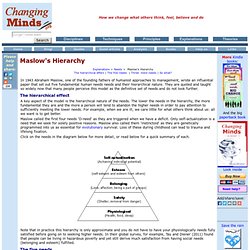

Cognitive fun! Will you perceive the event that kills you? David Eagleman is guest blogging this week.

When light strikes your eyes, it takes some hundreds of milliseconds before you become conscious of the event. As a consequence, you are always living in the past. This strange fact of our existence is well known is neuroscience, but there’s an interesting, underappreciated consequence: you may not ever become aware of the thing that kills you. Cormac McCarthy addresses this point in his post-apocalyptic novel The Road, in a scene in which the main character has his pistol leveled on a miscreant.
The malefactor challenges: “you won't shoot....they [my companions] will hear the shot.” The protagonist replies, “Yes they will. “How do you figure that?” “Because the bullet travels faster than sound. One way to appreciate the slowness of your perception is to compare it to the speed of mechanical devices. 15 ms - Roof begins to absorb part of the impact. The last line is the zinger. David Eagleman is a neuroscientist and a writer. Maslow's Hierarchy. Explanations > Needs > Maslow's Hierarchy The hierarchical effect | The five needs | Three more needs | So what?

In 1943 Abraham Maslow, one of the founding fathers of humanist approaches to management, wrote an influential paper that set out five fundamental human needs needs and their hierarchical nature. They are quoted and taught so widely now that many people perceive this model as the definitive set of needs and do not look further. The hierarchical effect A key aspect of the model is the hierarchical nature of the needs. The lower the needs in the hierarchy, the more fundamental they are and the more a person will tend to abandon the higher needs in order to pay attention to sufficiently meeting the lower needs.
Maslow called the first four needs 'D-need' as they are triggered when we have a deficit. Click on the needs in the diagram below for more detail, or read below for a quick summary of each. The five needs Physiological needs are to do with the maintenance of the human body.
Personality Quiz. The eight stages of human life - Philadelphia Mental Health. "Children love and want to be loved and they very much prefer the joy of accomplishment to the triumph of hateful failure.

Do not mistake a child for his symptom. " Erik Erickson 20th century German psychologist Erik Erickson proposed that there are eight stages of development that all humans go through. He parted company with his predecessor Sigmund Freud who believed that there were only five stages beginning at birth and ending at adolescence. Erickson, sometimes called the father of developmental psychology, believed that human beings continue to develop through the entire life span and along the way we are presented with eight critical challenges or crisis, one for each of life's stages. In order to be happy and successful each challenge or crisis must be met and overcome. Here are the eight stages of human development as proposed by Erik Erickson. Stage 1 (Birth to 1 year old) Trust versus Mistrust Stage Stage 2 (Age 2 - 3) Autonomy or Independence versus Doubt.